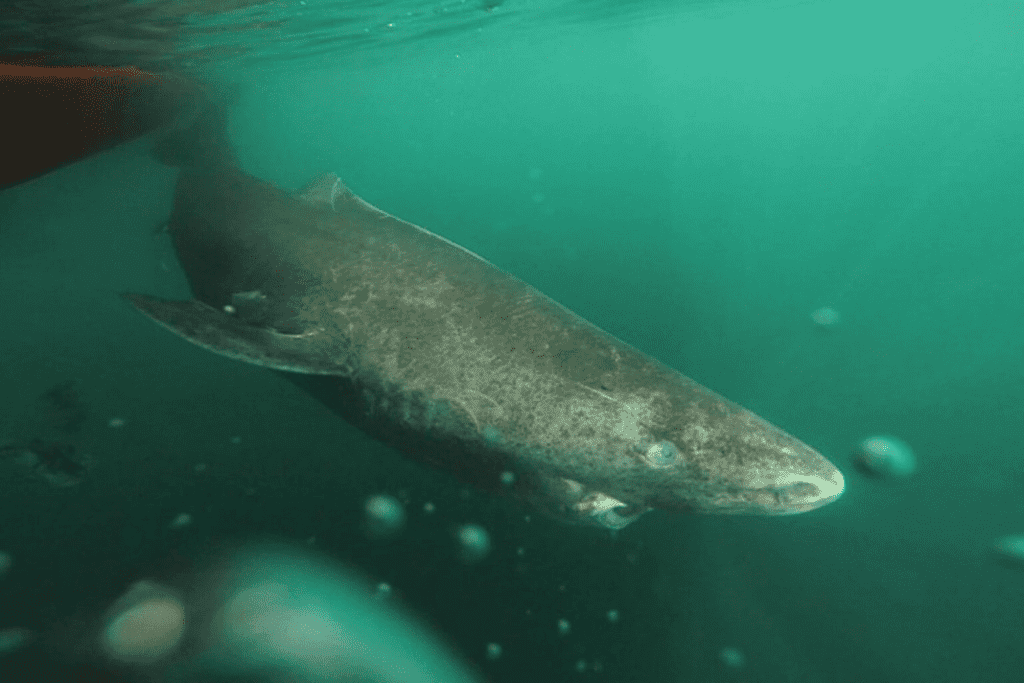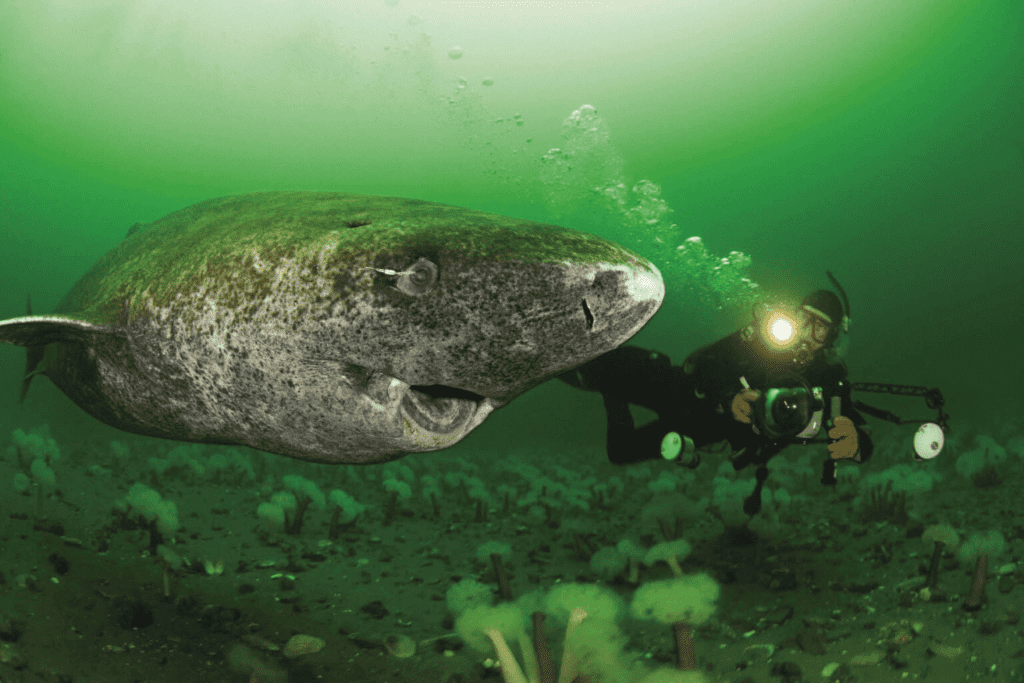Incredible Discovery: Scientists Find 400-Year-Old Shark!
Researchers recently made an astonishing discovery about Greenland sharks, uncovering their remarkable longevity. These incredible creatures, dwelling in the cold depths of the North Atlantic, have been found to live up to an astonishing 400 years!

The Study: How Did They Find Out?
A team of scientists, led by Julius Nielsen from the University of Copenhagen, embarked on a study to learn more about these mysterious sharks. Using a special dating technique, they determined the ages of 28 Greenland sharks. To their amazement, one female shark stood out as the oldest, estimated to be around 400 years old!
Greenland Sharks: The Longest-Lived Animals on Earth
Experts have long known that Greenland sharks are among the longest-lived animals on the planet. Prior to this discovery, the record holder was a bowhead whale, aged 211 years. However, the Greenland shark has now claimed the title of the oldest known vertebrate.

What Makes Greenland Sharks Live So Long?
Greenland sharks have a sluggish metabolism and inhabit frigid waters, which contribute to their extended lifespan. They’re often referred to as “sleeper sharks” due to their slow movement in the icy depths. These giants, reaching lengths of up to 5 meters, grow at an incredibly slow rate of only 1 centimeter per year.
Reproduction: A Late Start
Interestingly, these sharks don’t start reproducing until they reach a length of 4 meters, which typically takes around 150 years. This late start to reproduction adds to the mystery of their longevity.

Understanding Their Age
Scientists used various methods to determine the ages of the sharks, including analyzing their size and carbon dating techniques. By examining the amount of radiocarbon in their eyes, scientists estimated that the oldest sharks could be anywhere between 272 to 512 years old, with the most likely age being around 390 years.

Feeding Habits: Slow and Steady
Greenland sharks primarily feed on seal meat, but their slow movement suggests they likely consume seals that are either sleeping or deceased. This slow and steady approach to feeding aligns with their overall sluggish nature.
In Summary
The discovery of a 400-year-old Greenland shark has stunned scientists and further solidified these creatures’ reputation as some of the longest-lived animals on Earth. Their slow metabolism, cold-water habitat, and unique reproductive habits contribute to their remarkable longevity. These ancient giants continue to fascinate researchers and inspire awe in all who learn about them.











